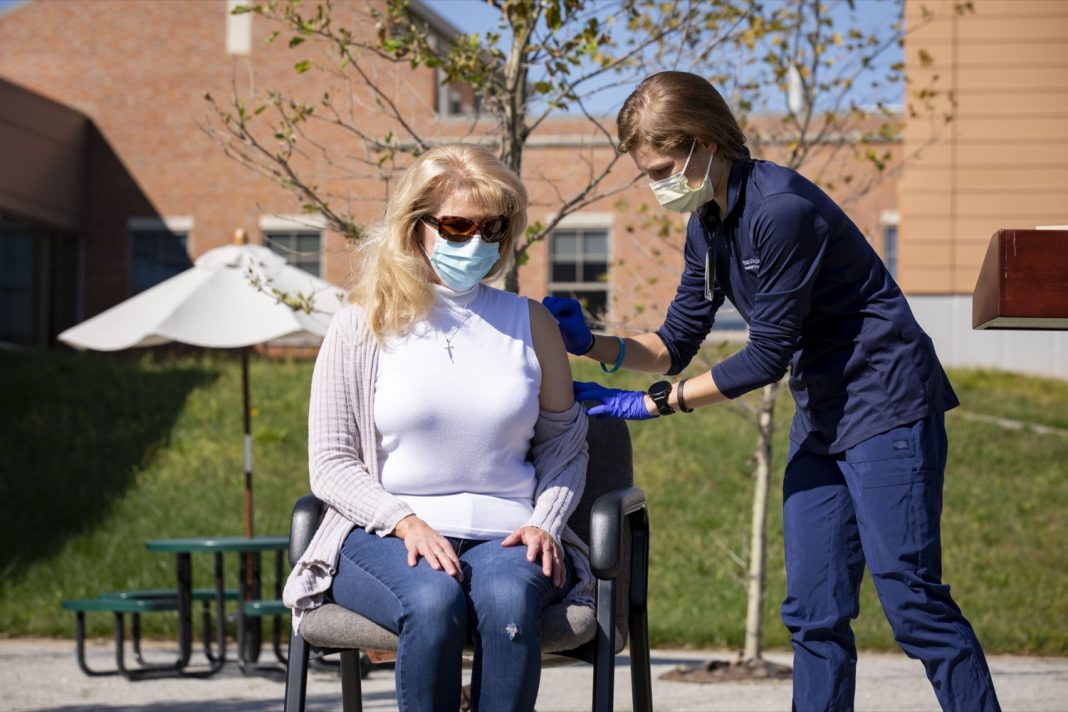Department of Health Acting Secretary and Pennsylvania Physician General Dr. Denise Johnson today joined public health officials from Penn Medicine Lancaster General Health to encourage residents to get their flu shot and COVID-19 vaccination boosters as we enter the 2022-2023 flu season.
“This flu season has the potential to be severe, so we are encouraging Pennsylvanians to get their flu shot and COVID-19 booster together to keep our communities safe,” said Dr. Johnson.
“Influenza is serious and can be deadly, which is why it is important that Pennsylvanians receive their flu vaccine. The flu shot is the best way to protect yourself against influenza, but I also encourage people to take other preventive measures to protect themselves from the spread of influenza. This is also an opportunity to continue the work of mitigating COVID-19 by receiving the new COVID-19 vaccine.”
This year, both the flu shot and nasal spray are available and recommended for everyone 6 months of age and older to protect against the flu. The flu vaccine can often diminish the severity of symptoms a person might experience should they come down with the flu.
The updated COVID-19 bivalent boosters are also available to provide protection against the original virus strain as well as the Omicron variant (and its subvariants BA.4 and BA.5).
“The flu shot and COVID-19 bivalent booster are both available by visiting your doctor’s office, pharmacy, grocery store, local walk-in clinic or state health center by appointment,” said Dr. Johnson. “The vaccination process is quick, easy and helps protect yourself and anyone you may encounter this flu season, which is just beginning. We recommend getting vaccinated before the end of October.”
Influenza is a contagious respiratory illness, caused by the influenza virus. It attacks the nose, throat, and lungs and may include the following symptoms: fever, headache, tiredness, dry cough, sore throat, nasal congestion, body aches.
Similarly, COVID-19 symptoms could include: fever, cough, shortness of breath, diarrhea, chills, repeated shaking with chills, muscle pain, headache, sore throat, new loss of taste or smell.
Since the flu and COVID-19 are comparable, it may be hard to tell the difference between the viruses based on symptoms alone, and so testing is needed to help confirm a diagnosis. It takes about two weeks for the antibodies from the vaccine to develop protection against infection. This small but powerful action will protect your family, friends and frontline health care workers who will be caring for sick people with respiratory illnesses this fall and winter.
Both vaccines reduce the risk of illness, hospitalization and death, and it is important to get both vaccines to protect yourself against both viruses. The CDC reported that it is safe to get the flu and COVID-19 vaccines at the same time.
In addition to getting vaccinated, Pennsylvanians are encouraged to practice preventive healthy habits like using your elbow to cover your mouth and nose when you cough or sneeze, frequently washing your hands during flu season, and remembering to disinfect commonly touched objects, such as doorknobs, light switches, countertops, cell phones, and computers.
If you do become sick with the flu, it is important to stay home and rest. If you are at risk for developing serious complications from the flu, or feel extremely ill, you should see a medical professional immediately.


